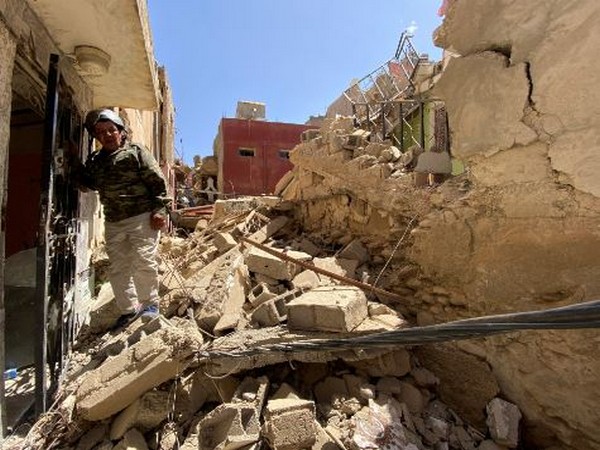Rural residents most affected after deadly earthquake hits Morocco
As the 6.8-magnitude earthquake hit southwest Morocco on Friday, the poor rural villages that line the valleys and peaks of one of the Atlas Mountains near the city of Marrakesh are the most affected ones, reported Al Jazeera.

- Country:
- Morocco
As the 6.8-magnitude earthquake hit southwest Morocco on Friday, the poor rural villages that line the valleys and peaks of one of the Atlas Mountains near the city of Marrakesh are the most affected ones, reported Al Jazeera. Marrakesh is one of Morocco's most popular destinations for tourists.
With over 2800 people dead, several countries have extended aid to bolster local efforts. Spain, the UK, Qatar and the UAE have provided support and rescue teams, including sniffer dogs. However, even after the aid, access still remains a problem as the aid has still not reached the distant villages, causing them to suffer.
Ahcan Ait Majid, a 70-year-old man, lost his wife and two sons in the deadly quake. Majid, who is a shepherd, wanders through the stationary traffic lining the narrow mountain road past Imgdal, leading to the mountain village of Tiniskt, reported Al Jazeera. "I've never known anything like this," he said, his eyes staring without focus. "I don't know what I will do now," he added.
To save themselves from the deadly effects of the earthquake, villagers have started returning to Tiniskt from the camp below, either salvaging what furniture they can or just standing on the street weeping. However, the smell of the dead bodies still hangs in the air, according to Al Jazeera.
Another resident of one of the villages in Morocco stands near the ruins of a shattered restaurant, overlooking the wide valley below. Yazid Bilbaraka, 27, from the nearby village of Moulay Brahim, said, "The sound followed the shaking." He added that the lights went off in both his house and the street, plunging Yazid and his family into pitch darkness as the tremors rolled and shook his house.
Now, as they are living with their extended family members, they have to sleep in a tent by the roadside. "I don't know what we'll do now," he said. "I worked in tourism… I don't know when I'll go back to work." Meanwhile, Amazigh people who populate Marrakesh are among those affected most by the earthquake, Al Jazeera reported.
Moreover, the narrow single-lane roads that go through the High Atlas Mountains were not built to accommodate the amount of traffic that is now trying to access these remote villages. Now, the roads groan under the weight of diggers, military trucks, and ambulances as they try to help the affected people.
Lhassen Machraj, a local, said, "Seven people died in the quake. The mountain village only has a population of about 150. My family is ok. We fled, but we've lost the animals and house, everything." He added, "I don't know what we will do. We just wait, we just wait."
Nearly every building in the mountain village of Tafeghaghte, which is 60 kilometres (37 miles) from Marrakesh, has been destroyed due to the quake. Both survivors and the bodies of the deceased were sought by civilian rescuers and Moroccan military personnel. The earthquake took place at 03:41:01 (UTC+05:30) at a depth of 18.5 km. The magnitude of the earthquake caused pulses to travel from Sidi Ifni in the south to Rabat in the north and beyond. (ANI)
(This story has not been edited by Devdiscourse staff and is auto-generated from a syndicated feed.)










